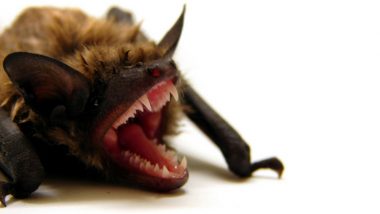The Nipah virus (NiV) outbreak in Kerala has already claimed 10 lives, including that of Nurse Lini Puthuserry who died while caring for patients infected with the virus. The nation could possibly be on the brink of a medical crisis since 25 others are also suspected to be infected by the virus. News of the initial three deaths broke out on Sunday May 21. Barely 12 hours later, the virulence claimed eight more lives. Medics suspect the role played by fruit bats, who are carriers of the Nipah virus, in the spread of the disease.
A situation of panic prevails in Kerala and in the neighbouring state of Tamil Nadu, considering a state of medical emergency has been declared in the former. At times like this, rumours and scaremongering can cause the dissemination of false information. Here are some important facts about the Nipah virus everyone should know about.
1 Nipah Virus Not New to India
The first outbreak of the disease was seen in Malaysia between September 1998 and May 1999. Countries like Bangladesh and Singapore too have also seen a similar outbreak. Although many of us may have heard the name for the first time, Nipah virus outbreaks had taken place in India, twice before. Siliguri and Nadia in West Bengal had seen NiV contagion in 2001 and 2007 respectively before Kerala did.
2 Fruit Bats Carry the Virus
In the 1999 outbreak in Malaysia, fruit bats were considered the primary culprits who carried the virus. NiV was spread to humans either directly through the bats or indirectly through material, like water and fruits, contaminated by the bats. In Kerala, three members of a Muslim family died of viral encephalitis. It is suspected that they drank water from a well in their property, which was infested with fruit bats.
3 Domestic Animals Also Pose a Risk
Although bats are considered the biggest threats, it can also infect domestic animals such as dogs, cats, horses and pigs. In the 1999 outbreak, pigs were the intermediate animal host for the virus. Workers at abattoirs where pigs were slaughtered were taken in ill during the first outbreak of the disease.
4 Person-to-Person Transmission Is Possible
In the first outbreak in Malaysia and Singapore, transmission of the virus was seen from animals to humans. The ones who came in close contact with infected pigs were the ones who contracted the virus. But in Bangladesh and India, cases of human to human transmission has been seen. Coming in close contact with the patient’s bodily fluids can spread the infection from one person to another. Person-to-person transmission is therefore seen in caregivers or family members of Nipah virus-infected patients. Nurse Lini Puthuserry who took care of infected patients died under similar circumstances.
5 Nipah Virus Spreads Through Infected Water and Fruits
Consuming infected foods such as half-eaten fruits, the sap of the date palm and date palm toddy can cause the transmission of the virus. Even drinking from water sources used by infected bats can the disease. However, it was noted that during the 1998-1999 contagion, people who consumed meat such as pork weren’t infected. Most of the infected people were pig farmers, handlers and abattoir workers.
6 Watch Out for Early Signs
Fever and headache, followed by drowsiness, disorientation, mental confusion and respiratory illness are the early symptoms, which starts showing within 3-14 days. According to the Center for Diseases Control and Prevention, the incubation period of the virus is 5 to 14 days. One of the major signs of the disease is altered mental state, confusion and disorientation because the virus causes inflammation of the brain and the central nervous system. In 24-48 hours, the patient may progress to coma. Sometimes, the infection may stay latent inside the human body for years after exposure. It may suddenly reactivate, which could result in death.
7 Risk Factors
Nipah virus can infect anyone. People of all ages are at risk of getting infected. Abattoir workers and people who handle livestock such as pigs and horses are particularly at risk.
8 No Treatment Is Currently Available
Currently, there are no drugs or vaccines to prevent Nipah infection. However, supportive therapies may help to a large extent. Rest, increased fluid intake and symptom management are the current treatment approach for the infection. Early treatment with ribavirin can help in reducing the duration of the fever and the severity of the illness.
9 Prevention Is the Best Bet
Preventing the spread of the virus is of utmost importance in containing the disease. Avoid contact with animals, even domesticated ones like cats, dogs, horses and pigs. If you live in the endemic area, never pick up and consume fallen or half-eaten fruits; they may contain the saliva of fruit bats which are the carriers of NiV. Beware of consuming date palm sap and toddy. Avoiding contact with people who are infected with the virus.
(Reference: FROM BATS TO PIGS TO MAN: THE STORY OF NIPAH VIRUS, , Nipah Virus (NiV) Nipah virus infection: current scenario)
(The above story first appeared on LatestLY on May 22, 2018 11:49 AM IST. For more news and updates on politics, world, sports, entertainment and lifestyle, log on to our website latestly.com).













 Quickly
Quickly





















